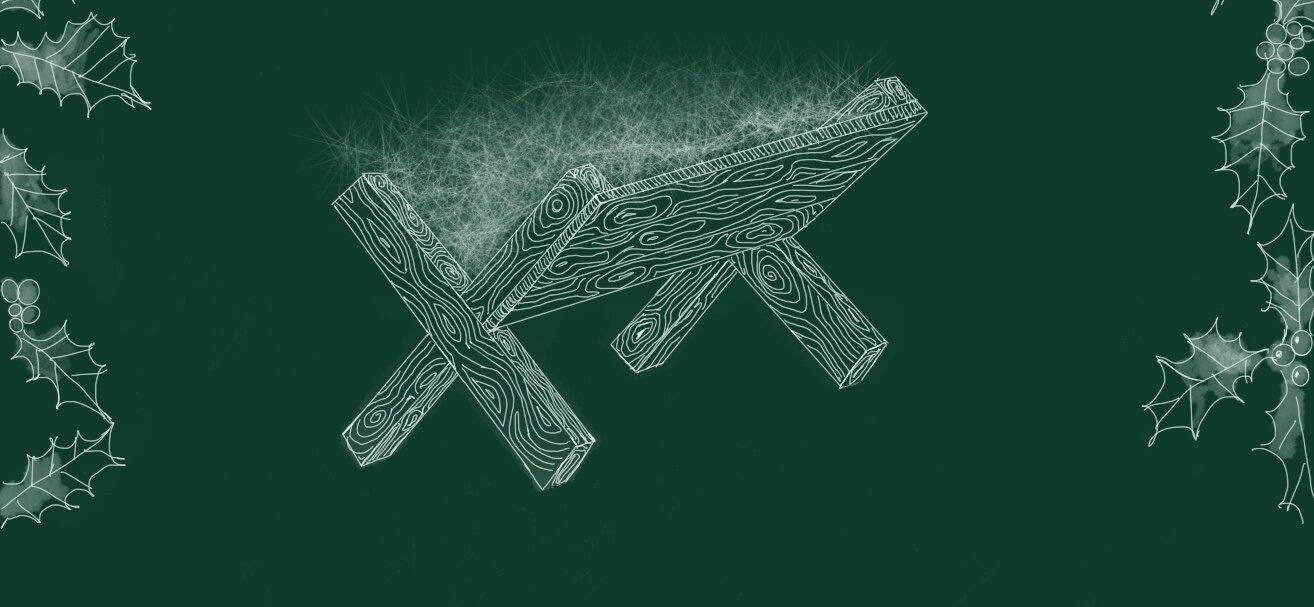Hope
What strange days we live in.
A billionaire reality TV star is in the White House; Kayne is making gospel music; and baby Yoda is Disney’s new Mickey Mouse in its conquest of the entertainment industry. There is still war in the Middle East; millions of Muslims are being “re-educated” in western China; and the Amazon rainforest is on fire by decree of the government. Some want to deregulate the market, and others want to deregulate identity. We live in a unique time, and for some, it may be hard to see a way forward.
What good company we have.
Returning from exile only to have your home not what it used to be - and believing that it was all your fault or that one king’s fault. Being under the boot of the Roman Empire, wondering if your nation will ever be liberated (the last attempt didn’t last too long). Having the announcement that will change the world, and having your life threatened because of it.
It’s hard to have hope in days such as these, but the Hebrew Scriptures and early church writings give us a picture of what our hope is and why we even have it.
To the writers of the Old Testament, the concept of hope is connected to the concept of waiting. In ancient Hebrew, the word Yakhal is used as a direct correlation to our word “wait”. Another word used is Qavah, a derivative of Qav, the word for “cord”. Qavah has connotations of tension, like the pulling of a cord - the feeling of just before the string snapping i.e. satisfaction.
For Israel, hope was found in the waiting for Yahweh to come and renew the kingdom, often to Davidic level since David is often used as a comparison piece. When the prophets were on the scene, they would speak of his coming and encourage the people to both repent and wait, all with the hope of a new age.
At this moment, the LORD is hiding his face from Israel, so I will wait (Qavah) for him. Isaiah 8:17
O Israel, hope (Yakhal) in the LORD;
For with the LORD there is unfailing love.
His redemption overflows - Psalms 130:7
Depending on whether you ask the writer of the Annals of the Kings (1 + 2 Kings) or the writer of Chronicles (1 + 2), Israel’s downfall was either on the kings or on the people, but Chronicles, in particular, leaves the story open for a messiah to come and redeem Israel as a light to the nations, despite the failures of the previous generations and kings.
And so they waited. For over 400 years.
Then, Jesus explodes onto the scene and out of the pages. His life, death, and resurrection generated a new hope. God’s Kingdom was now here, and one day, Jesus would return to bring it to its completeness. Jesus became the climax to Israel's story and the beginning of a brand new family that would span the nations. Greek has a the word Elpis, meaning hope, expectation, trust, or confidence. That’s quite a loaded word so let’s see how Paul uses it.
To whom God was pleased to make known what is the riches of the glory of this mystery among the Gentiles, which is Christ in you, the hope (Elpis) of glory. - Colossians 1:27
To Paul, the hope of God’s new kingdom is a present reality that is both experienced by Christians but is also made known through those Christians who have hope for a coming age. N.T. Wright has described history as a 5-act play, where we are in the 4 act waiting for the fifth and final one. The now and the not-yet.
And so during the season of Advent, we wait - yakhal, qavah, elpis - for the Adventus (coming) of Christ. We recreate the anticipation of the nation of Israel waiting for their redeemer and continue in the Christian story of hope for his glorious return.
O come, O come, Immanuel
And ransom captive Israel.

